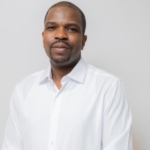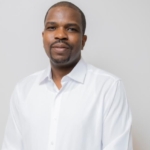
“Having no other mines to work, Massachusetts has mined into the human intellect; and, from its limitless resources, she has won more sustaining and enduring prosperity and happiness than if she had been founded on a stratification of silver and gold, reaching deeper down than geology has yet penetrated,” Horace Mann.
Ghana’s universities have become payroll factories rather than powerhouses of innovation. Every year, the nation spends over GH¢6.8 billion, approximately US$450 million, solely on salaries and allowances in the tertiary sector. That figure devours nearly two-thirds of the Ministry of Education’s budget for higher education before a single experiment is conducted, a single innovation incubated, or a single research paper published. We are funding comfort, not creativity. We are building paychecks, not progress.
If even half of that money, about GH¢3.4 billion or US$225 million, were redirected toward innovation, industry partnerships, and skills development, Ghana could transform its tertiary landscape within a decade. That money could be used to establish technology and innovation hubs on every major university campus, where students would be trained in artificial intelligence, robotics, coding, renewable energy systems, and data analytics. It could fund national bootcamps for entrepreneurship, where graduates work with private sector mentors to develop startups addressing challenges in agriculture, water, sanitation, and green energy. A portion could support university-industry liaison centres that connect academic research to business applications, ensuring that every engineering, business, or environmental science student gains practical experience through internships and collaborative projects. With such investment, Ghana could establish regional centres of excellence in mining technology, biotechnology, and sustainable materials, thereby linking university training directly to national development priorities.
Such a shift would also make it possible to establish innovation incubators and robotic laboratories in universities and technical institutes, providing students with hands-on experience and employable skills in this age of artificial intelligence.
The same funds could be used to create entrepreneurship cohorts across tertiary institutions, providing seed funding and mentorship for young innovators. This approach would not only generate jobs but would also nurture a generation of problem solvers who can drive Ghana’s industrial transformation. Especially in this age of artificial intelligence, when by the next decade more than half of the traditional jobs for which students go to college will either change drastically or disappear entirely, Ghana cannot afford to keep funding an outdated education model built around guaranteed government salaries instead of creativity, adaptability, and lifelong learning. The future belongs to nations that train their youth not for redundancy, but for relevance.
Under Ghana’s current tertiary structure, universities may recruit staff only after receiving financial clearance from the Ministry of Finance. Even when a university advertises positions and conducts interviews, it cannot appoint the successful candidates until the ministry authorises payment. Once approval is granted, the staff member is placed on the Controller and Accountant General’s Department payroll, where salaries are processed centrally.
This means that lecturers, administrators, and TEWU members across all public universities are paid directly by the government. The universities themselves have little control over who is hired, how much they earn, or when promotions take effect. The consequences are predictable: delayed postings, salary arrears, weak accountability, and a lack of connection between performance and reward.
The fiscal burden of this model is enormous. The education sector already consumes over 28 per cent of total public expenditure, and tertiary wages alone account for more than half of that figure. In practical terms, Ghana spends almost the same amount on paying university staff as it does on constructing roads, subsidising agriculture, and financing rural electrification combined.
If universities were allowed to handle their own payrolls and employment contracts using block grants and internally generated funds, the government could save at least GH¢3 billion, or about US$200 million, each year. Those savings could be reinvested in upgrading technical and vocational schools, funding research and innovation, expanding student entrepreneurship and digital skills training, and building the next generation of artificial intelligence and robotics laboratories across tertiary campuses. Instead of perpetually struggling to pay salaries, Ghana could finally invest in the intellectual infrastructure that drives innovation and economic transformation.
Across the developed world, including the United Kingdom, Canada, France, and the United States, governments have long recognised that the state’s role in higher education should focus on regulation, oversight, and funding, rather than direct payroll administration.
In Massachusetts, for instance, where some of the world’s leading universities operate, the state does not pay lecturers or maintenance staff directly. Institutions such as Harvard, MIT, Boston University, and the University of Massachusetts system hire and pay their own staff from internally managed accounts. Public universities, such as UMass, receive a state block grant to support their public mission, but they manage recruitment, budgeting, and payroll independently.
Each department hires staff according to need, and they are paid from a combination of tuition, research grants, philanthropy, and endowment income. Faculty salaries are negotiated based on market value, experience, and research output, rather than being dictated by a centralised government office. Even the cleaners and maintenance workers at UMass are not state employees. They work under contracts managed by the university’s facilities department or by private service providers. This allows universities to manage their human resources flexibly and efficiently while maintaining accountability through annual audits and public reporting.
What is most remarkable is the broader outcome of this autonomy. Massachusetts consistently ranks as one of the best states to live in the United States, not because of its mineral wealth or natural resources, but because of its educated workforce, which has created a vibrant economy anchored by world-class universities, hospitals, and a biomedical industry unmatched anywhere in America.
A state with no gold, no oil, and no vast farmlands has become an innovation powerhouse through the intelligent management of its human capital. It is a living demonstration that education, when efficiently organised, is itself a natural resource. As the American education reformer Horace Mann, often called the father of public education, famously said, “Having no mines of silver or gold, Massachusetts has chosen to mine her most abundant resource, the human intellect.” That philosophy transformed Massachusetts from a small colonial state into a global leader in medicine, research, and higher education.
Ghana can learn from these systems without losing public oversight. The key is to separate funding from control and payroll from policy. Instead of issuing financial clearances for every lecturer or cleaner, the government can provide annual block grants to each university. The universities would handle their own recruitment, negotiate salaries, and manage payroll based on performance and available resources. The Ghana Tertiary Education Commission will continue to ensure accountability by requiring each university to publish audited financial statements and submit annual performance reports. Oversight would shift from bureaucracy to transparency.
This reform would also allow universities to restructure their workforce efficiently. TEWU members could be placed directly on university payrolls or contracted through service providers, just as universities in Massachusetts and London do. This would reduce redundant wage costs, promote accountability, and enhance service delivery. A university that manages its own staff can reward innovation, discipline underperformance, and attract international expertise.
Financial autonomy would enable universities to implement performance-based pay systems, where teaching quality, research output, and innovation determine remuneration. Institutions that attract grants, publish research, and create community impact would be able to pay higher salaries and bonuses. Those who underperform would have to restructure.
Ghanaian universities could also attract international students through globally competitive programs in sustainable development, energy law, and African governance. Massachusetts, for instance, hosts over 70,000 foreign students who contribute more than US$4 billion annually to the state’s economy. Ghana’s universities could do the same if they were freed from government bureaucracy and allowed to operate as independent, nonprofit academic enterprises.
Endowments and alumni funds could also be expanded. Companies that donate to university research or infrastructure may be eligible for tax incentives, fostering a culture of philanthropy and partnership between academia and industry.
This is how world-class universities sustain growth and excellence. If Ghana implemented this reform and redirected the estimated GH¢3 billion annual savings from payroll into innovation and skills development, the economic impact would be immense. That amount could provide free high-speed internet and digital infrastructure to every senior high school and every tertiary institution, modernise libraries and laboratories across campuses, establish a National Research and Innovation Fund, and support thousands of young entrepreneurs building AI-driven startups. Instead of chasing jobs that may not exist, graduates would be creating the industries of the future.
The notion that the government must directly compensate every university worker is a relic of colonial times that no longer suits a dynamic modern economy. That system was designed for a small civil service, not a country of over 40 million people aspiring to compete in the digital age. Today, it stifles initiative, delays payroll, and weakens accountability. It forces universities to depend on government bureaucracy instead of cultivating innovation and self-sufficiency. Lecturers and TEWU members are professionals who should be employed by academic institutions, not civil servants under ministerial control.
The government must fund universities, but it should not run them. Ghana’s universities must therefore become autonomous, nonprofit corporations governed by boards responsible for finances, recruitment, and performance. Government oversight should be achieved through regulation, audits, and equity policies, rather than through the signing of pay slips. This transition will not be easy, but it is the only way to build a competitive and sustainable higher education system. A university that can hire, pay, and discipline its staff independently can innovate, partner globally, and prepare students for the future of work.
The time has come for Ghana to end the era where the government signs every pay slip in our universities. That money must now be freed to build the future, a future powered by artificial intelligence, entrepreneurship, and innovation, where Ghanaian graduates are creators of opportunity, not seekers of it. Only then can the nation break free from the cycle of dependency that sends it year after year to the International Monetary Fund, begging for a tattered pittance to patch a broken fiscal system.
True economic independence will not come from aid or borrowing; it will come from mining the most abundant resource we possess, the Ghanaian mind. Our public space and management system remain bedecked with far too many colonial and 1950s socialist models that were ostensibly designed to pave the way for equity, but in reality have festered nothing but endemic poverty and a gyration of mismanagement. We must begin to rethink, rebuild, and recreate.
–
By Manaseh Mawufemor Mintah, PhD
Environmental Health Compliance Manager, US Environmental Protection Agency
Doctor of Philosophy in Environmental Studies, Antioch University New England
Master of Arts in Sustainable International Development, Brandeis University
Juris Doctor, Massachusetts School of Law
LLM Candidate, University of Dundee, International Minerals and Energy Law and Policy
- President Commissions 36.5 Million Dollars Hospital In The Tain District
- You Will Not Go Free For Killing An Hard Working MP – Akufo-Addo To MP’s Killer
- I Will Lead You To Victory – Ato Forson Assures NDC Supporters
Visit Our Social Media for More




